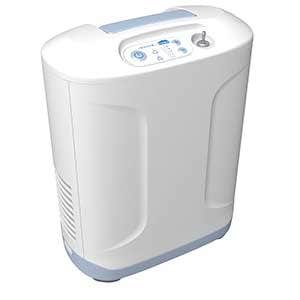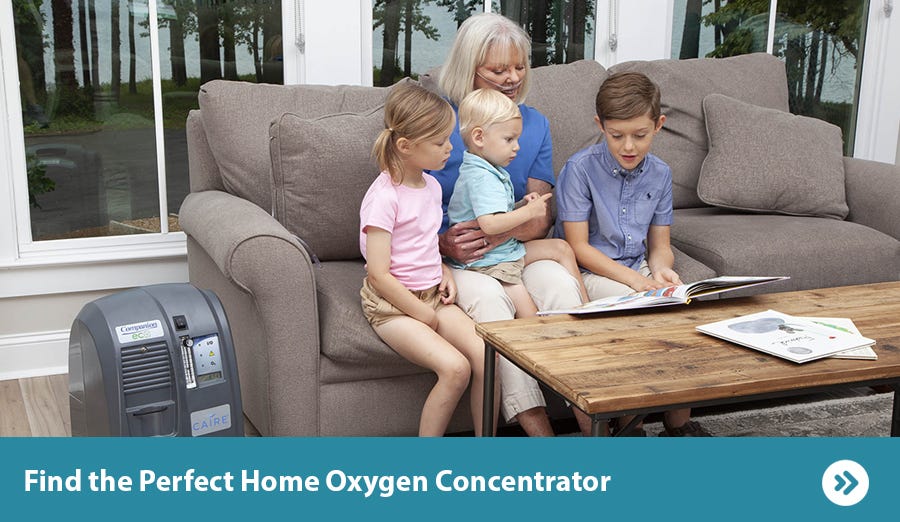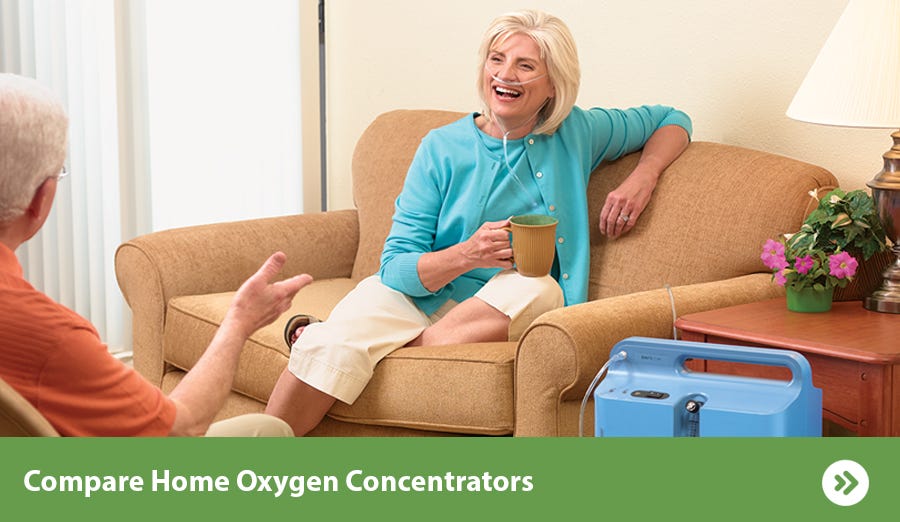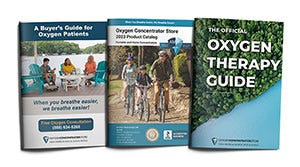-
![Respironics EverFlo Q Home Oxygen Concentrator]() Respironics EverFlo Q Home Concentrator
Respironics EverFlo Q Home Concentrator- 31 Pounds
- 1 to 5 LPM
- 3 Year Warranty
- Includes Everflo Q unit, cannula, and manual.
-
![Invacare Platinum 10 Home Concentrator]() Invacare Platinum 10 Home Concentrator
Invacare Platinum 10 Home Concentrator- 53 Pounds
- 2 to 10 LPM
- 3 Year Warranty
- Includes the Platinum 10 unit, cannula, and manual.
-
![Invacare Platinum 10 Home Portable Oxygen Concentrator]() Invacare Platinum 10 with SensO2 Concentrator
Invacare Platinum 10 with SensO2 Concentrator- 53 Pounds
- 2 to 10 LPM with Sens02
- 3 Year Warranty
- Includes the Platinum 10 unit, cannula, and manual.
-
![AirSep VisionAire 3 LPM Home Concentrator]() AirSep VisionAire 3 LPM Home Concentrator
AirSep VisionAire 3 LPM Home Concentrator- 30 Pounds
- 1 to 3 LPM
- 3 Year Warranty
- Includes VisionAire 3 unit, cannula, and manual.
-
![AirSep VisionAire 5 LPM Home Concentrator]() AirSep VisionAire 5 LPM Home Concentrator
AirSep VisionAire 5 LPM Home Concentrator- 30 Pounds
- 1 to 5 LPM
- 3 Year Warranty
- Includes VisionAire 5 unit, cannula, and manual.
-
![DeVilbiss Ifill Personal Home Oxygen Station - 535D-2EC]()
Featured Video
Getting Started with Home Oxygen Concentrators Video
Learn About Selecting a Home Oxygen Concentrators
Home concentrators are very robust and with routine maintenance will often run efficiently for 20,000 to 30,000 hours. Routine maintenance includes keeping the air intake clean and periodically cleaning and/or replacing the filters.The oxygen generating capacity (liters per minute of oxygen flow) of a home concentrator is most typically 5 liters per minute. The vast majority of oxygen users are prescribed dosages between 1 and 5 liters per minute. The largest commercially available home concentrator delivers 10 liters per minute. Although it is fairly rare, patients needing over 10 liters per minute can bundle units together for increased oxygen delivery.
Relatively new to the market are super small (around 10 lb) home concentrators. These units will run on AC (wall outlet) or DC (cigarette lighter) power and are so light that it is easy to move them from room to room or put them in the car for travel. They currently only support oxygen flow rates up to 2 liters per minute.
The medical grade oxygen produced from a home concentrator is delivered in what was earlier described as continuous flow. This means that the oxygen is continuously flowing through the cannula to the patient’s nostrils. Most doctors recommend and prescribe continuously flowing oxygen for nocturnal (night time) use.
The settings on a stationary concentrator are very self-explanatory. Other than the power button the primary adjustment on most units is a flow tube with a knob on the bottom. This knob adjusts the liter flow per minute. For more updated stationary units, you’ll be able to adjust the settings via “+” and “-” buttons. Plus to increase settings and the minus to decrease.
It is not uncommon for a patient with sleep apnea to also be on oxygen therapy. Patients using a CPAP or BiPAP and on oxygen therapy connect their sleep apnea device to the home concentrator on continuous flow.
Home Concentrators Frequently Asked Questions













